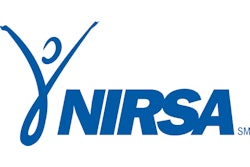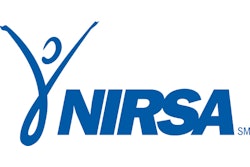
This is a tale of two campus recreation administrators seeking to make a difference at their institutions.
The first, Korey Lane, believes campus rec is at an inflection point, and he wants to make sure he’s in a position to succeed as student demographics and administrative priorities continue to shift.
“How can we better justify ourselves to those who might lack an understanding about what we in campus rec are able to provide to students to help them grow, develop and transform?” asks the 33-year-old associate director of programs within Tulane University’s campus recreation department, where he’s been since 2018.
The second, Diane Yee, has an aptitude for professional and personal development. And at age 39, with more than two decades of experience in campus recreation, she considers herself a lifelong learner. Since 2017, she has been director of campus recreation for Metropolitan State University of Denver, a 100 percent commuter campus of 16,000 students with an average age of 25.
“In the past, campus recreation has catered to students residing on campus. However, in recognition of the ever-evolving needs of our student body, we have redirected our efforts to meeting them where they are,” she says. “This may even take the form of literally meeting them in their local communities, as we strive to provide off-campus programs.”
New certifications
Given their motivations to improve their own skill sets to benefit their campus communities, it should be no surprise that Yee and Lane are part of the first group of Certified Student Affairs Educators who recently earned their specialty certification in Campus Recreation, or CSAEd-CR. The pilot program debuted in February, and nearly two dozen mid-level or higher professionals completed it to earn a “specialty credential for demonstrating continuous learning, competency and knowledge in established domains which are essential to success in the complex and evolving landscape of campus recreation work,” according to the program’s website. The certification is intended to help campus recreation professionals advance their careers while also gaining a greater understanding of the work and challenges of their peers in other campus life departments.
“Developing a campus recreation certification … enhances recognition for the credential across student affairs and student services, which will in turn support transitions between functional areas and contribute to a certified individual’s advancement into senior level leadership positions,” NIRSA executive director Pam Watts said earlier this year.
The launch of the new professional certification marks the culmination of a multiyear development process led by the Higher Education Consortium for Student Affairs Certification — a new organization established collaboratively by NIRSA along with ACUI (formerly the Association of College Unions International), the Association of College and University Housing Officers – International (ACUHO-I), the Association of Fraternity/Sorority Advisors (AFA), the Association for Student Conduct Administration (ASCA), the National Association for Campus Activities (NACA) and the National Association of Student Personnel Administrators (NASPA). (Other specialty credentials can be earned in the functional areas of campus activities, campus housing and residential life, campus recreation, college unions, fraternity and sorority life, and student conduct administration.)
Already, the Campus Recreation certification is paying off for Lane and Yee. Lane is responsible for working with different partner groups on campus during Tulane’s Welcome Week orientation programming each fall. “Now that I know a little bit more about what everyone else involved is bringing to the table, what tweaks can I propose in what I am — or someone else is — bringing to the table?” he asks. “Maybe we can reexamine what we’re doing and create something more cohesive, collaborative and impactful that benefits everybody involved.”
“It’s not just letters at the end of my signature. This certification helped identify my strengths and areas of growth,” adds Yee, who has reached out to staff in other departments at MSU Denver to help her better navigate crisis and risk management issues in her campus recreation role. In return, she’s leveraging her areas of expertise to engage cross-campus communities.
‘You have to take chances’
Arguably, in a post-COVID world, professional development in all industries is more critical than ever. The 2023 Aspiring Directors Institute — slated for July 12-14 at Northwestern University and designed for mid-level professionals seeking higher-level positions in student affairs — is another cross-association program involving NIRSA, ACUHO-I and ACUI.
“There are a lot of transferable skills in campus housing, unions and recreation,” says Chris Schmoldt, interim director of the student union at West Virginia University who also helped develop programming for the institute. “And so the skills that you are going to gain and the experiences that you’re going to have at this institute may help you in any of those three disciplines on your campus. I think people will leave feeling like they’ve set themselves up for greater success.”
Schmoldt, 38, knows what he’s talking about: He has 15 years of experience in campus recreation and was associate director of campus recreation at WVU before becoming the union’s interim director in August 2022.
“Being able to take those experiences from campus recreation and transfer and apply them somewhere else — and then being able to show that to other people — is what I’m most proud of right now,” he says. “In a way, I’m hoping it helps show others on campus that the skills you gain in recreation can be transferred to other areas of higher education.”
Making yourself more valuable to both the campus recreation department and other student life entities is one way to strategize an upward career trajectory, according to Lane, who suggests giving CSAEd-CR certification some serious thought.
“If someone is at a point in their career where maybe they’re considering that first step up the ladder, or looking at a role that involves a lot of collaboration with campus peers, or even trying to shift into another area of student affairs, it would be an asset,” he says.
Yee takes that idea further by recommending ways in which campus recreation professionals can increase their leadership capabilities even without participating in an official certification process. “Take every opportunity to learn something new and pay it forward,” she says. “Diversify your skill set and find ways to get involved on your campus outside of your silo.”
Yee is entering her fifth year as Staff Senate treasurer, and in 2019, she developed a university-wide Lunch Buddies program that serves as an employee-engagement tool by helping cultivate unlikely one-on-one connections.
“You have to take chances when given the opportunities,” echoes Schmoldt. “You need to go outside your comfort zone to get new experiences.”





































